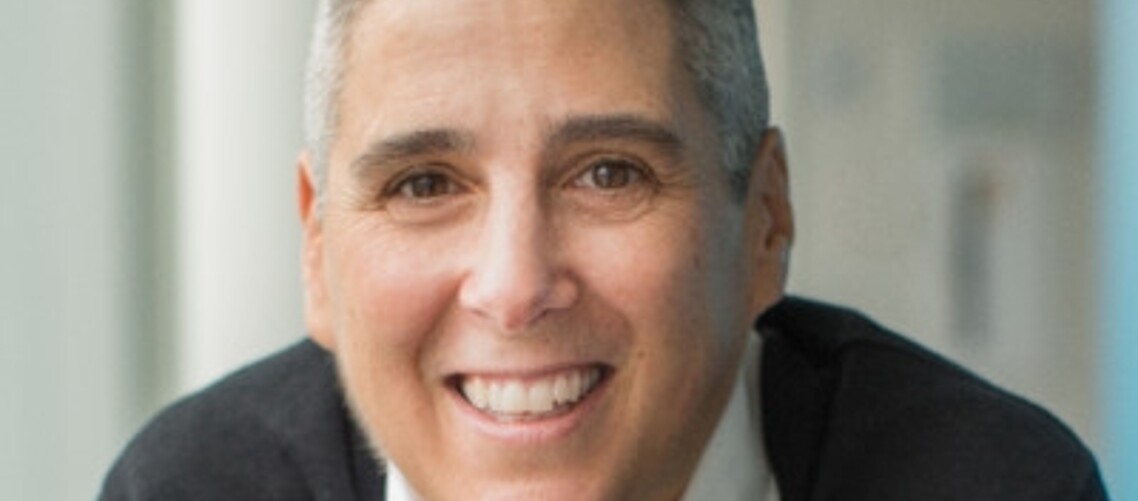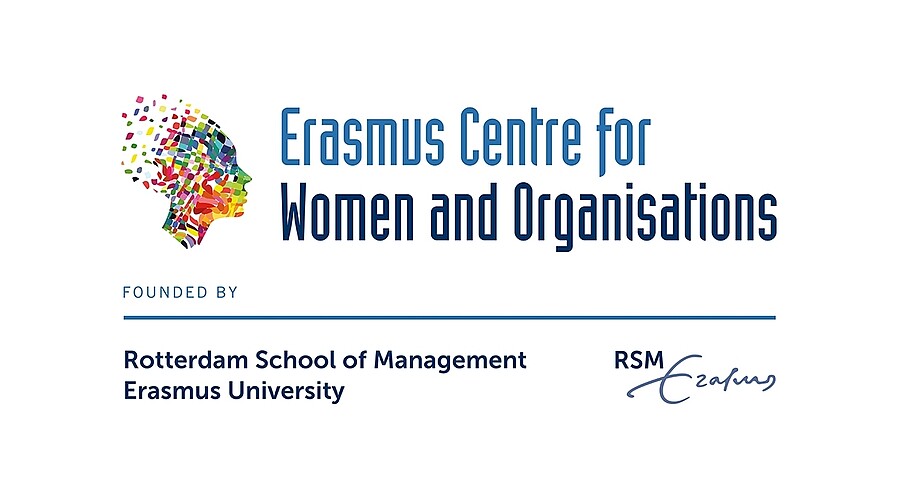Originally posted on 21 October 2021
Currently Professor of English and Media Studies at Bentley University and Programme Facilitator for ECWO and Bentley's Gloria Cordes Larson Center for Women and Business, Wiley says their own lived experience as gender non-conforming also plays a role in the work that they are doing.
We spoke to Wiley about their journey with ECWO, the instrumental role in their life of our founder, Prof Dianne Bevelander, how we can better understand intersectionality and why ECWO’s work continues to be important.
Your relationship with ECWO extends back to 2015 and you’ve often spoken about the role that Dianne has played in your life. Can you give our community insight into that?
I would not be where I am today if it were not for Dianne. I remember the first time I had lunch with her in Boston, and she told me about ECWO. I instantly connected with her – and her energy and passion. It felt as if we had known each other for years. I quickly grew to see her extraordinary ability to make things happen, even though I knew it was never easy and that she often had to do a lot of work behind-the-scenes. A month after having lunch with her I was watching her facilitate a programme at Erasmus, and she turned to me and said “Wiley, why don’t you come up and take over this piece”. The next thing I knew I was facilitating one of her programmes and my work with ECWO had started!
Dianne put women’s leadership – women leading from wherever they find themselves - front and centre of ECWO’s work. What was it about her own leadership that struck you?
The phrase “inclusive leadership” can be emptied out of any real meaning but when it came to Dianne, she truly could see the unique strength in each of us. She was able to foster that and, in doing so, brought together her own truly diverse team and celebrated us for our individuality. I remember when she asked if I would join ECWO as a facilitator, I immediately said “I’m gender non-conforming and you’d like me to deliver programmes for women?” She looked at me and, in that disarming way I came to know, said “Oh Wiley, it’s the Netherlands. Anything goes”. We had just gotten our food from the buffet and she jokingly added “Just don’t tell me you’re a vegan”. I looked down at my plate and thought “do I come out as vegan now or do I wait?” We laughed about that for years. And of course nothing mattered to Dianne except that you got excited about what she was excited about. With Dianne, it all seemed possible. Achieving gender equality seemed possible; when you were with her, it seemed to be coming into view on the horizon. The work that we do can be emotionally and physically exhausting but with Dianne it always felt like it was making a difference.
How did your own journey intersect with the passions that led to Dianne creating ECWO?
Dianne was mindful that we are never one single identity and that, as Kimberlé Crenshaw so powerfully identified, power and privilege shift, depending on how our identities intersect at any given moment of our life or time. I think she felt keenly that my lived experience of diversity meant I had something valuable to bring to the ECWO community and she welcomed its role in the centre’s core work in advancing gender equality in organisations.
Can you give us some insight into what that lived experience has been?
I remember being in eighth grade and getting used to the word “lesbian” but knowing that it didn’t feel right for me, and then getting to another point in my life where I knew that my sexual orientation was queer but my gender identity was what people around me were experiencing the most and that this was not fixed as male or female. The experiences that I have had in my life and my identity as gender non-conforming meant that, from the start, I approached my work from an intersectional viewpoint. It also meant that I increasingly got called on to do diversity work, including diversity retreats for faculty and staff at Bentley. Although I was still teaching Chaucer and had developed a course at Bentley called Monsters and Madmen that had “Beowulf” hidden in it, I became less intrigued by the literature of the past and more drawn to the lived experience of the present - and the more work I did in diversity, the more it informed the courses that I taught and the work that I did.
Much of that work has found its way into the book you recently co-authored with Duncan Spelman, Leading with Uncommon Sense. Can you tell us a little about it?
How to talk across differences is something we all confront – and it’s even more stark right now in the United States where people are finding it harder and harder to communicate with each other. The book focuses on developing the intra-personal – how you have conversations with yourself by recognising that there are things that are outside of your awareness but that are still influencing your decisions. In the book we look at how to pause to pay attention to emotions and identities and how becoming better at the intra-personal level enables you to have better exchanges on an interpersonal level. Leading with uncommon sense means going against mainstream thinking about leadership. It means slowing down, engaging with our emotions, paying close attention to social identities, and embracing complexity. Dianne was able to do this in a way that was just so powerful. I remember once I was with her and another facilitator whom she was coaching on projecting their voice. I jumped in and said that when I’m traveling, I notice that when people see me they read me as a man but when they hear my voice they read me as a woman. I shared how that can lead to people being really hostile which can sometimes put me in a pretty vulnerable position. Even though what I was saying had nothing directly to do with ECWO, Dianne dropped everything and said ‘right, we are going to work on this so you never find yourself in a vulnerable position again’. She was never flummoxed by anything that you brought to the conversation. She walked the talk with equality, inclusion and belonging, without it ever being a zero sum game. It’s a rare leader who can do that.
How does our community do that? How do they understand and do the work in intersectionality?
One of the first things is to be committed to doing the work; to think about deeply about how all of us are never just one identity – that we are so many different identities that are brought into relief at different moments in our lives and at different hours of the day. We need to be willing to recognise that this is the richness of each person’s life. My work with ECWO has revealed, for instance, how at some institutions gender matters but so does nationality so, for instance, we can’t just talk about what it means to be a woman in a particularly organisation but what it is to be a woman whose doesn’t have English as her first language. We have to recognise that an intersectional approach means we must be willing to say there is gender and … gender and race, and gender and race and rank in the organisation and so on. Taking an intersectional approach means we see people for their individuality and the unique make-up of their social identities and while it is certainly messier and more challenging for leaders, the value of taking this intersectional approach is that it leads a more sustainable organisation.
What is the merit, then, in our work being focused on gender balanced leadership and gender equality?
I think the work needed in the area of diversity and inclusion is situational and it depends on where attention is needed, where voices need to be heard. In any organisation there are going to be groups of people who need to have an understanding of, and the space to speak about, the dynamics they are operating in and the dynamics of what they are coming up against in a systemic sense. ECWO’s work is so important because there is a tremendous need to create space for women to be able to talk about what they are experiencing and give them the insights to see the system and then how to change it. Of course it doesn’t have to be the only conversation and there is an opportunity to add in other layers of identity but keeping focused on women is vital.
Thank you Wiley. It’s great to get your insights and thoughts on the importance of continuing to build on Dianne’s incredible work.
I cannot imagine what Dianne would have achieved if she’d lived. When I think about quality over quantity and what she did in the time that she was physically on this earth, well my mind boggles. The impact she has had is so far-reaching and will endure and I am proud to be part of continuing her legacy.

